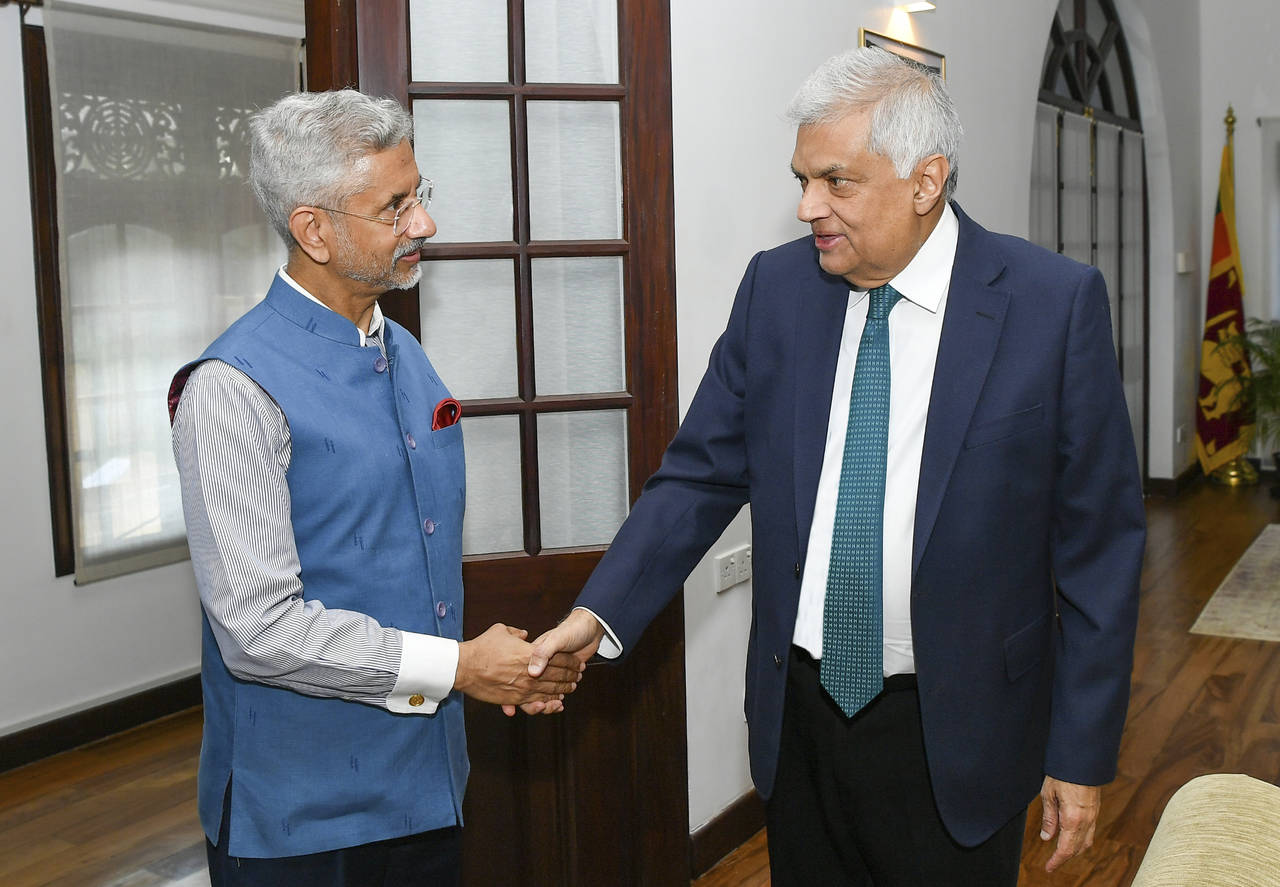As Sri Lanka battles one of the worst economic crises since its independence, India’s actions are being scrutinised with a fine-tooth comb. Earlier this week, India extended a credit line of $1 billion, which was part of the $4 billion assistance package, for another one more year — providing the much-needed breather to Sri Lanka.
India has offered support and assistance including food and medicines to the beleaguered island nation since the start of the unprecedented economic crisis. While India has underlined its focus on its “Neighbours’ First” policy, it has also managed to position itself as a credible and reliable partner upstaging China, which enjoyed significant control in the island nation.
“Since the onset of Sri Lanka’s ongoing crisis, India has acted with alacrity to provide succour to the island nation,” the Diplomat said, adding that the Chinese loans, mostly used to build economically nonviable “white elephant” projects, are seen as a key factor that hastened Colombo’s economic and even gave rise to allegations of “debt-trap diplomacy.”
External Affairs Minister S Jaishankar who visited Colombo in January reiterated India’s commitment to provide the necessary support to Sri Lanka.
“I would like to underline that India is a reliable neighbour, a trustworthy partner, one who is prepared to go the extra mile when Sri Lanka feels the need. My presence here today is a statement about Prime Minister Modi’s commitment to ‘Neighbourhood First’,” Jaishankar said in the presence of Sri Lankan President Ranil Wickremesinghe.
India, which is looking at investments in Sri Lanka’s energy and infrastructure sectors, also assured the International Monetary Fund (IMF) that it would support Colombo’s debt restructuring programme.
Meanwhile, the committee of Sri Lanka’s official bilateral creditors co chaired by India, Japan and France held its first meeting earlier this week and agreed to provide debt relief to the cash starved nation. Colombo, on its part, committed to transparency and comparability of treatment towards all official bilateral creditors.
China which accounts for about 20 per cent of Sri Lanka’s total debt, has so far refused to join the 17 countries committee. At the official meeting of the committee, China along with Saudi Arabi and Iran participated as an observer.
However, the committee reiterated “its invitation to other bilateral official creditors to formally join the creditor committee.” The committee comprises Paris Club members as well as other official bilateral creditors of Sri Lanka.
Since China is not part of the committee, Colombo is now planning to hold separate meetings with China on the issue of debt restructuring.
India positioning itself as a credible partner of the Global South
An exercise which essentially kicked off as Prime Minister Narendra Modi’s Neighbourhood First policy has extended beyond the “neighbours.”
In February, New Delhi was one of the first countries to offer help to Turkey, which was hit by a devastating earthquake. Within hours of the earthquake, India sent a C17 flight carrying more than 50 search and rescue personnel along with trained dog squads. The flight also carried the necessary relief equipment which included drilling machines and medicines. Last year, New Delhi had also provided relief material to Afghanistan.
India, with its quick and effective support and relief work provided to countries, is now being recognised as a credible force on the world stage, standing up for the Global South.
In fact, at the peak of the Covid 19 crisis, India even supplied vaccines to several countries. Though the exercise was halted with the rapid rise in Covid cases within India, New Delhi did manage to win much acclaim.
“The strategy is extremely effective, making New Delhi gain more as a global influencer compared to its arch rival China,” a foreign policy expert told India Narrative.
Surprisingly last year at a time when the island nation was grappling with the situation, a news report published by Quartz said that in the Sri Lankan crisis “there’s only one beneficiary” and that is India.
“India has played a shrewd game till now and ended up with an exceptionally good hand, radically improving its bargaining power in Colombo,” it said, adding that New Delhi has also quietly been plucking the fruits of its efforts.
The moot questions that come forth are : What stopped China from providing timely help to Sri Lanka? If Beijing had managed to gain substantial control over Sri Lanka through its investments, why didn’t it come forth to assist Colombo during its gravest hours?
After all, why shouldn’t India try and expand its soft power?
Also read: Are India and Sri Lanka turning Trincomalee into major energy and industrial hub of South Asia?
Sri Lanka gets breather from China but debt trap problem remains




















